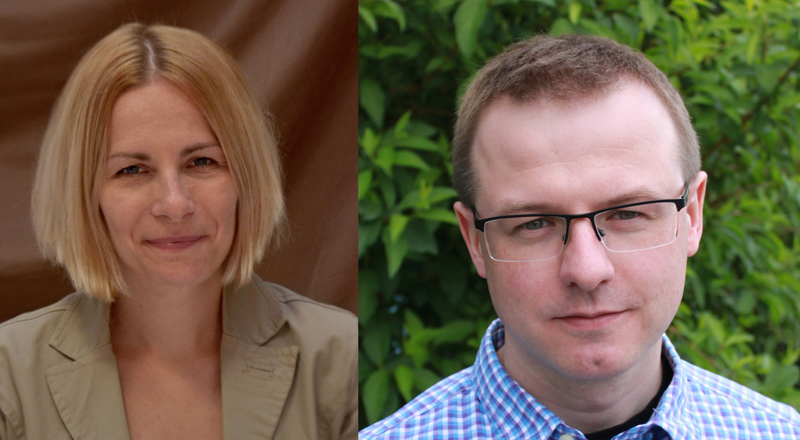Two Dioscuri Centres of Scientific Excellence in Nencki Institute
The Nencki Institute has received founding within the Dioscuri Programme, to establish two Centres of Scientific Excellence of Max Planc. One Center will be focused on metabolic diseases, led by Dr Grzegorz Sumara from University of Würzburg, Germany; the second one will be established within the field of regulation of genes expression, led by Dr Aleksandra Pękowska from National Institutes of Health, US.

Dr Aleksandra Pękowska (download CV)
Title of the project:
Evolutional and functional genomics of astrocytes.
Project description:
Astrocytes are the most abundant glial cell type in the central nervous system. They are critical for brain plasticity. Various neurological conditions, including Alzheimer's disease and Down syndrome, feature aberrant activity of astrocytes. Thus, the dissection of the gene regulatory network underlying astrocyte identity will be instrumental in understanding how these cells control brain functions in health and disease.
We use stem cell models, high throughput sequencing technologies (ChIP-seq, RNA-seq, Hi-C), CRISPR-Cas9 mediated genome editing, and computational tools, to define regulatory elements (promoters, enhancers, silencers, and insulators) that underlie astrocyte identity and functions.
In parallel, we are using neural development as a model system to determine the impact of chromatin topology on transcriptional regulation. We are particularly interested in the role and the regulation of CTCF binding in the context of promoter-enhancer interactions.
Dr Grzegorz Sumara (download CV)
Title of the project:
Decoding signaling events inducing lipolysis in adipocytes during metabolic diseases
Project description:
Induction of uncontrolled lipolysis in adipocytes independently of nutritional demand of the organism is an event contributing to the development of multiple metabolic diseases including obesity, type 2 diabetes (T2D) as well as cancer-associated cachexia (CAC). Multiple hormonal and nutritional inputs promote lipolysis. However, signaling events regulating the rate of lipolysis in adipocytes are not completely understood. Our preliminary data revealed an unexpectedly high number of kinases implicated in regulation of this process. Moreover, our data suggest that ubiquitin-proteasome-dependent signaling might be critically implicated in regulation of lipolysis. In the framework of this grant we are planning to investigate the regulation of lipolysis by different classes of signaling molecules and the impact of specific signaling modules on development of obesity, T2D and CAC using combination of screening, proteomic as well as classical biochemical and mouse genetics techniques.
The Dioscuri programme is initiated by the Max Planck Society, to support the development of lighthouses of scientific excellence in Central and Eastern Europe, promoting outstanding researchers who want to conduct their research within the region. This is a joint programme of the Polish Ministry of Science and Higher Education, and the German Federal Ministry of Education and Research, and is designed to strengthen the scientific exchange between Poland and Germany. The work of the Centres will be accompanied by Partners from German universities or research institutions.
